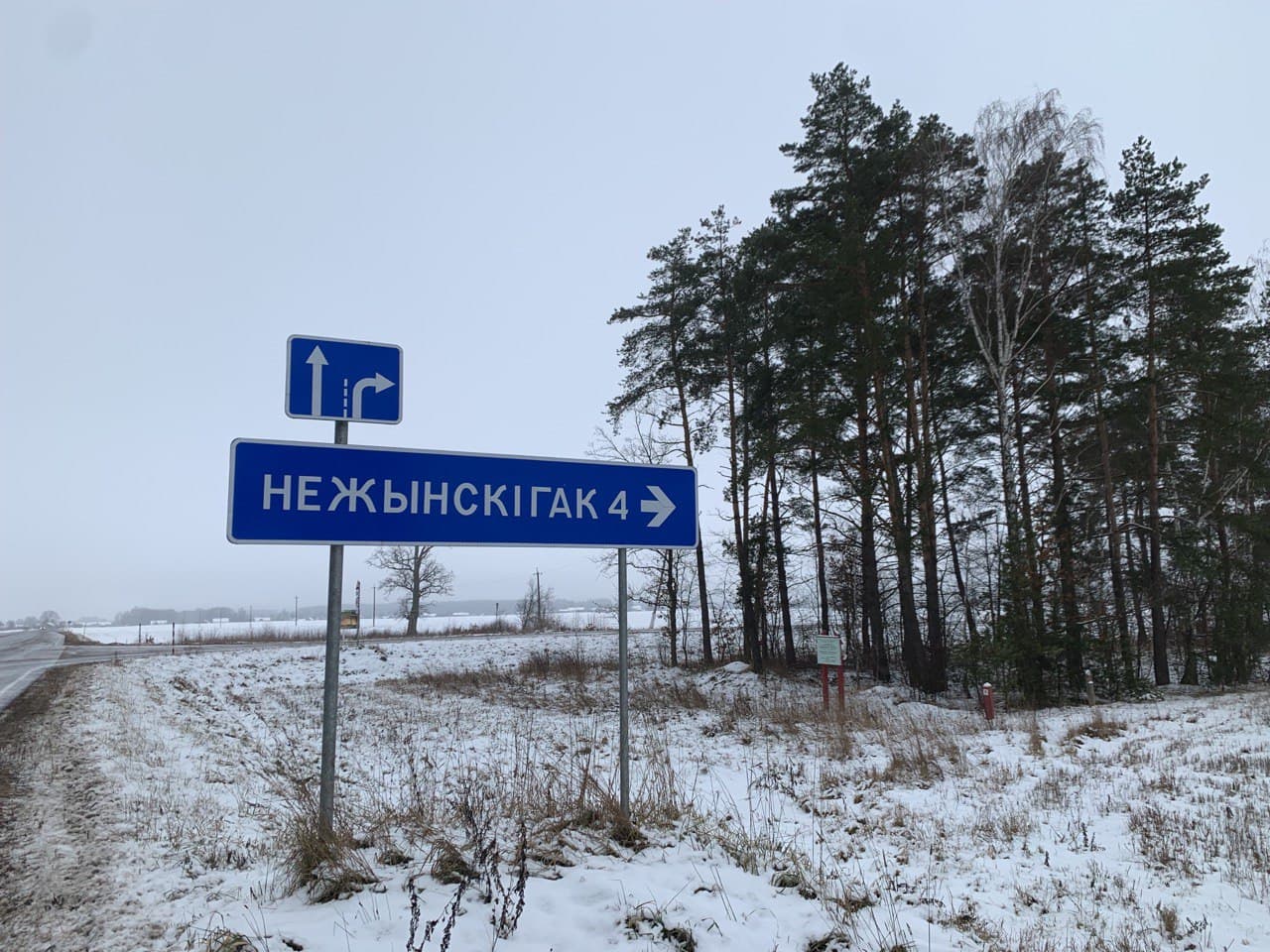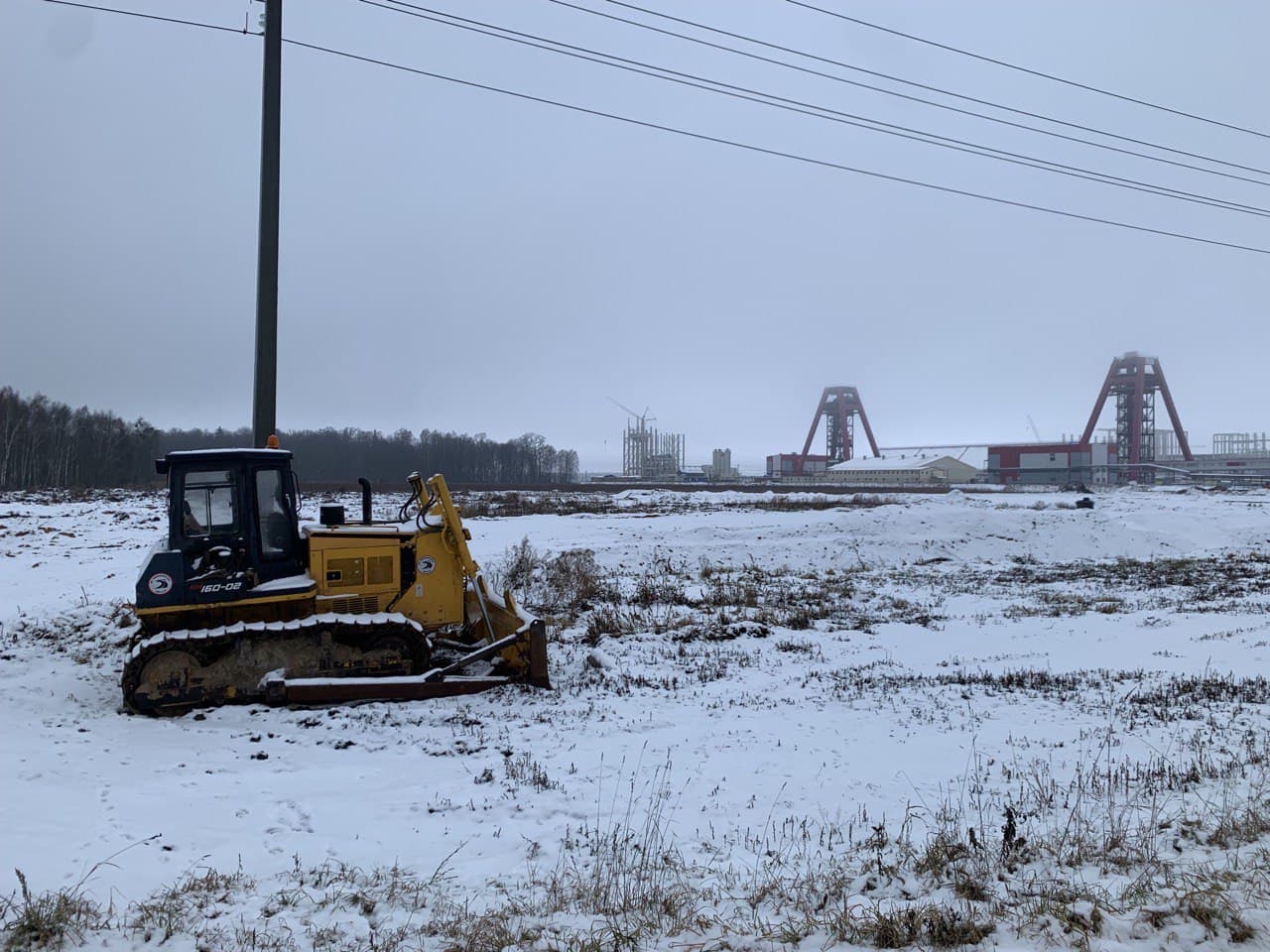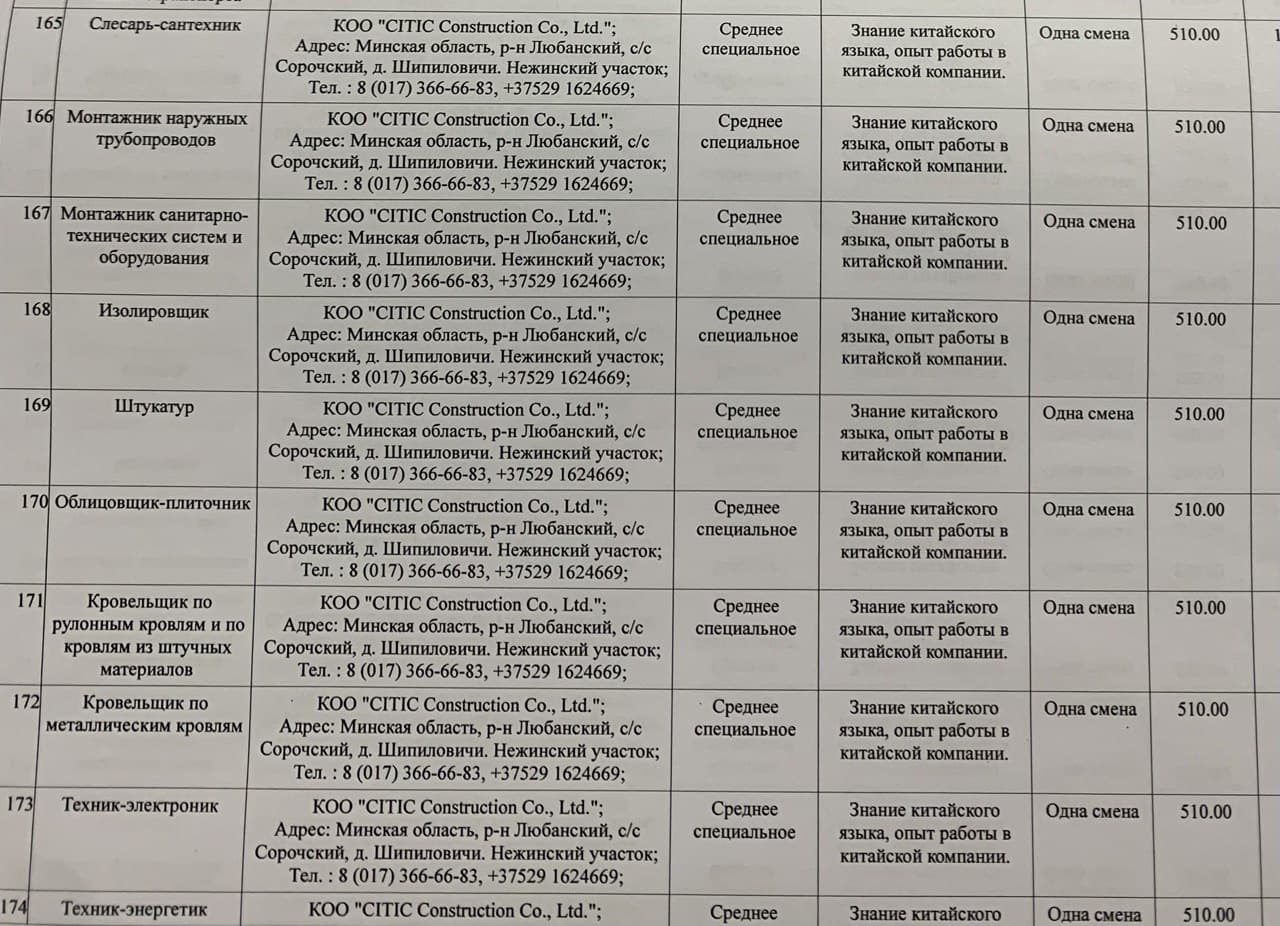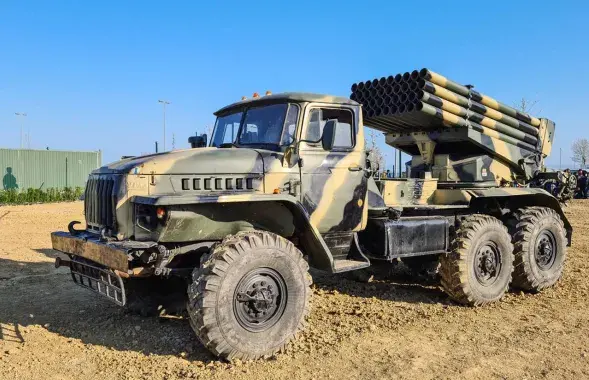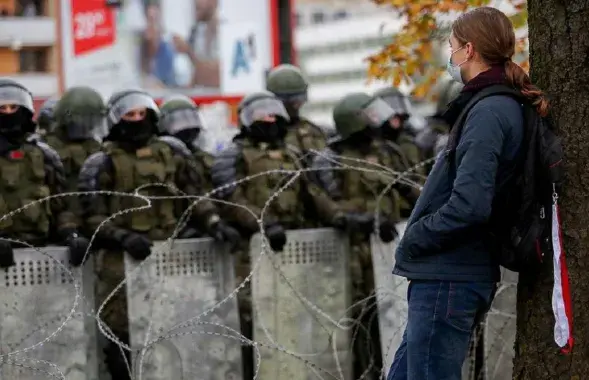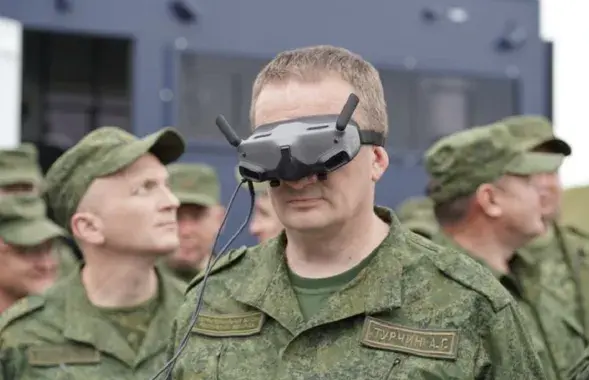Slavkali is no more. What happened with Gutseriyev’s potash mine in Belarus?

The Nezhinsk mine sees little to no activity / Euroradio
Slavkali and its contractors cover up what’s happening in the Nezhinsk ore mining and processing enterprise. The locals talk about the potash deposit project seemingly put on hold.
Slavkali company, owned by Mikhail Gutseriyev, develops deposits near Luban using Chinese money. However, China stopped stopped credit financing this summer because the EU and the UK sanctioned Gutseriyev. There have been no official statements about what’s happening in Nezhinsk ever since. Slavkali’s press relations service refuses to comment.
Euroradio decided to see what was up with the enterprise and, while we were here, asked the locals how the construction was going.
No prominent construction noticeable on the territory of the Nezhinsk mine
Close to the village adjacent to the Nezhynsk plant, we notice what might be considered a curiosity for the Belarusian rural area. Two Chinese men are seemingly out for a run. They are jogging down the road in the direction of travel, to boot. Two dogs are running with them. We must admit, we didn’t take any photos because of utter bewilderment.
As we are getting closer to the plant, snow-covered equipment appears on the side of the road. People at the front security gate deny us entrance, of course.
“Photo and video recording are not allowed. All the information is available on the official website,” snaps out the security.
We ask if the construction is going to end soon.
“I hope so,” answers the security guard, and that’s it, we part ways.
It is impossible to detect whether there is some activity inside or not. We notice a group of 5 or 6 workers a little way away. Other than that, it seems like the whole enormous complex is empty.
Funding frozen, workers dismissed
In Luban, they talk a lot about the Nezhinsk plant. One thing is obvious, though – the construction has some financial issues.
“Oh no, it [the plant - Euroradio] won’t be closed. They dismissed the manual workers. Sanctions, you know. But they keep building. Just as Lukashenka said, we’re not afraid of the sanctions. We’ll pave another road,” a middle-aged man says.
Luban corner store greets us with the customer’s outcry.
“I’m sorry, but a ten-thousand [salary] won’t do! It is peanuts.”
From her conversation with the store clerk, we understand that the sum is in Russian rubles, and there are not many jobs in Luban. But how could it be, we wonder, when Slavkali is building a plant right there?
“There’s no salary. What are you talking about? Slavkali is no more. It’s been frozen for a month or two, I think,” answers the store clerk.
“A half of the Chinese left, but there are a lot of them here, still. They’re funding it. They work here as well. There were also others. The Chinese employed our people. Slavkali is working, but the scale is minuscule,” adds her coworker.
"It’s a Chinese open prison here"
There are two talkative guys at a coffee shop.
“They stopped the construction because of the sanctions. For the next year, at least. No funding. That’s why, until there’s a change of power, the construction will stay inactive,” tells one of the guys.
They both say there are the Chinese working at the Nezhinsk plant.
“What they have here is a Chinese open prison. The Chinese came here with their families from the hinterlands, and now they just can’t leave. They will not go back until the construction is over,” adds the other guy.
We ask how they survive then.
“In the barrack. They seem to be getting paid.”
“These are no barracks, trust me. Nice digs. And they don’t get paid in time. I’ve been to the “barrack.” It had swimming pools and gyms.”
“You visited the wrong Chinese. It’s different for the ordinary working men.”
We check with them about the Belarusian constructors from the Nezhinsk plant.
“A small part of them is still working. Others were mostly subcontractors. So, when they completed their tasks and didn’t get any new ones, they left. They took the equipment along. Before that, there was a truly superior construction. Perhaps, someone might’ve stayed to finish some stuff with what money’s left. They will reopen again. It’s a matter of time."
Subcontractors look for workers but refuse to comment
Even though, according to the locals, the construction at the Nezhinsk mine is frozen, Luban employment center is looking for construction industry workers with knowledge of the Chinese language and experience working at a Chinese company. There are also job openings for those who know German and work with German equipment.
There are more than 60 vacancies. Some of them require more than 30 workers. Some date back to the start of September, others – to the end of October. All of them offer flexible work hours. Despite the high-level requirements, the salary ranges from 510 to 550 Belarusian rubles. The employment center is looking for all kinds of specialists – from managers and economists to masons, painters, and geodesists.
The employers are a Chinese company CITIC Construction Co., Ltd., and a German REDPATH DEILMANN. Both of them operate at the Nezhinsk mine.
Ihar Prakhocki, Deputy head of the CITIC Construction Co., Ltd. in Belarus, answers the questions about the Luban construction with:
“I’m afraid I won’t be able to answer. I think no one will be anytime soon.”
Dzianis Iholka, Head of CIS projects at REDPATH DEILMANN GmbH, says he is unaware of what’s happening at the Nezhinsk plant.
“I’m in Germany now. You better ask someone onsite about the construction.”
We couldn’t reach the top management in Minsk. But we saw multiple cars with the REDPATH DEILMANN GmbH logos towards the Nezhinsk ore mining and processing enterprise.
Euroradio has sent official inquiries to the companies to clarify whether they were operating in Nezhinsk or not and if they were wary of the sanctions against Mikhail Gutseriyev. We also sent an inquiry to Gutseriyev himself to tell us more about the plant’s day-to-day activities and prospect.
